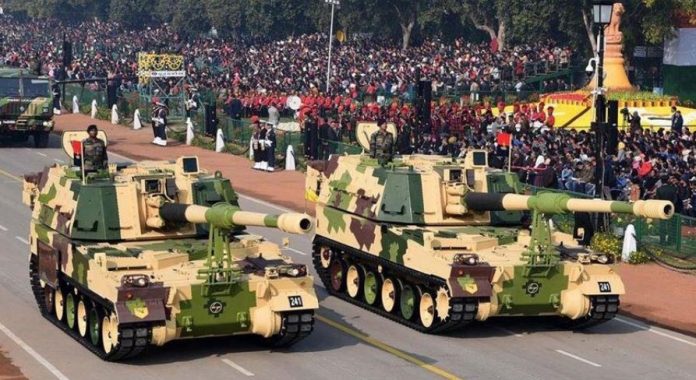NEW DELHI, JAN 25 – As India prepares to celebrate Jan. 26, the 72nd year of implementation of its Constitution, experts said the reason behind its success and longevity in a pluralistic country has been its secular nature.
But with the vision to turn the country into a Hindu nation, the stable structure of secularism is at risk, they claimed.
Prashant Bhushan, a public interest lawyer and constitutional expert, told Anadolu Agency that efforts to dismantle India’s republic are causing a real threat to the Constitution.
“To be able to protect fundamental rights of the citizens of India, we need to have a strong democracy. With the attacks getting real on the secularity and freedom of rights in the current regime, the threats to the Constitution are serious and insidious,” said Bhushan, who faced contempt proceedings for tweeting his opinions.
He said that with an exponential rise in vigilante groups attacking freedom of speech and the state using sedition laws against dissent, the evil in the government is personified.
“With the introduction of laws like love-jihad and anti-conversion law, the Muslims in the country are being reduced to second class citizens. If this under the will to turn India into a ‘Hindu-nation’ continues, it will pose greater threats to the secularism and in-turn Constitution,” he said.
Some state governments in India recently introduced a controversial bill to curb so-called “Love Jihad” — a term used by right-wing Hindu groups alleging that Muslim men target Hindu women for conversion to Islam by pretending that they love them.
In recent years, law enforcement agencies have increasingly used the colonial law of sedition to curb intellectual dissidence. Enacted in 1837, it was originally meant to prevent incitement against the British monarch.
Legal experts said it emerged as a lethal tool in the hands of police to book dissenters.
It is a non-bailable offense and has life imprisonment as maximum punishment. Mahatma Gandhi was charged with sedition by British officials and tried in 1922.
According to the data compiled by the National Crime Records Bureau, the number of registered sedition cases doubled from 35 in 2016 to 75 in 2018. Of these, only one was convicted in 2016 and two in 2018.
Between 2019 and the first three months of 2020, when the country protested anti-citizenship laws, more than 3,000 Indians were charged with sedition.
Bhushan said that while the threats rise out of the subverted, if taken too far, the resilience of Indian citizens will help the country survive.
Constitution’s success and longevity
While constitutions around the world that were adopted about the same time as India have been abrogated or floundered, the Indian Constitution has survived the test of time.
Subhash C. Kashyap, former head of the inter-parliamentarian union at Geneva and a political scientist, said the Constitution remained successful because of its spirit of adjustment, compromise and interest toward sensibilities of all sections of people.
“The constitution-makers worked very hard to prepare a draft which would bring together a fragmented, diverse society and will be acceptable in the length and breadth of the country. Even till today, it is the greatest national integration force,” Kashyap told Anadolu Agency.
He said that while 104 amendments have been made to the Constitution, all have been in accordance with the Constitution.
Kashyap pointed out that how the Constitution affects citizens will depend on those who work it, their honesty and capability.
“If the Constitution is targeted, what is wrong is with the people working it and their integrity. Men of integrity will revert even the bad to good. A lot depends on the political behaviors and understanding of the constitution,” he said.
Kashyap added that electoral reforms are required for the success of the Constitution.
Just like, Bhimrao Ramji Ambedkar, the father of the Constitution warned years ago: “It is perfectly possible to pervert the Constitution, without changing the form by merely changing the form of administration and to make it inconsistent and opposed to the spirit of the constitution.”
Republic day celebrations and the importance
India was a colony of the British for more than 200 years until it freed itself in 1947, following a long independence movement. Despite independence, the country continued to follow British laws set in 1935 under the “Government of India Act” until 1950 when India became a sovereign republic.
The Constitution of India, drafted by a committee headed by Ambedkar, was adopted Nov. 26, 1949, by the Indian Constituent Assembly and came into effect Jan. 26, 1950, with a democratic government system.
Each year since, a magnificent parade constituting a march by military forces and a display of the latest defense equipment and weapon systems is conducted at the Rajpath – a ceremonial boulevard across Parliament House and India Gate.
This year, however, the parade will be subdued because of the ongoing coronavirus pandemic and protests from Indian farmers to revert the newly introduced farm laws, on the borders of New Delhi.
The “overall traditional character” of the parade, which showcases the country’s military might and cultural diversity, “will, however, be maintained” despite restrictions necessitated by the pandemic, confirmed officials.

















